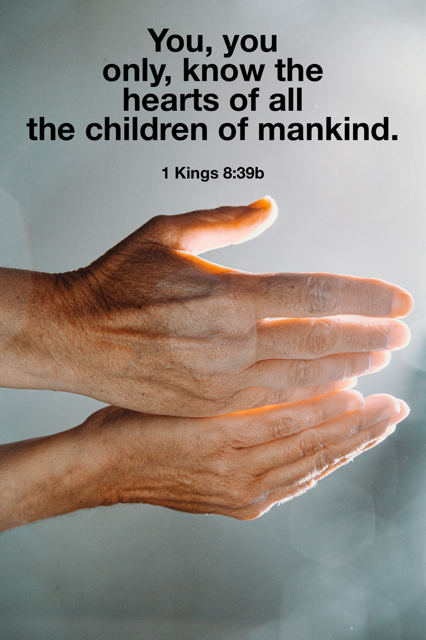Whenever Hannah’s story is taught from the Bible, one phrase stands out to me that I rarely hear comment on.
Hannah dearly longed for a child. In those days, men had more than one wife, and her husband’s other wife did have children. That would have been hard enough, but this rival wife “used to provoke her grievously to irritate her, because the Lord had closed her womb.” This went on for years.
It seems understandable that Hannah would be grieved. But her husband, Elkanah, said, “Hannah, why do you weep? And why do you not eat? And why is your heart sad? Am I not more to you than ten sons?”
This is the part of the story I don’t hear teaching about. Elkanah seems a little clueless here. At the worst he sounds arrogant: “Hey, you’ve got me. What else do you need?”
To give him the benefit of the doubt, he may have been thinking of the shame associated with childlessness in that day, or the concern that a childless widow would have no one to care for her after her husband died. Perhaps he means, “Don’t worry about those things, Hannah. My status and provision are enough.”
Even with the best of intentions, Elkanah didn’t seem to understand the longing of his wife’s heart, not just for status or elder care, but for her own child to love. Her yearning for a child did not lessen her love for her husband.
So what did Hannah do? She went to the temple to pray.
Normally this would be a good thing to do. We’re often told these days to draw close to our spiritual community. But sometimes our community rubs salt in the wound instead of helping.
This story occurred during the time of the judges, when “everyone did what was right in his own eyes,” leading to some of the most bizarre behavior recorded in the Bible. This was a low point in Israel’s history. Apparently, the priest, Eli, had seen so little fervent prayer that he thought Hannah was drunk and rebuked her.
So what’s a woman to do when her loved ones and her spiritual community don’t understand her, and, in fact, add to her burden?
Hannah poured out her heart to the Lord. She “was deeply distressed and prayed to the Lord and wept bitterly.” She could safely share the depths of her feelings and cares with Him. She knew He was the only one who could meet her need.
She answered kindly. When Eli accused her of being drunk, she didn’t lash out at him. She just explained a little about her heart’s burden. There’s no record that she responded to her rival in kind or fussed at Elkanah.
She did not become bitter. She could have harbored negative feelings against everyone involved, but there’s no record that she did.
She had faith. After she prayed and asked the Lord for a son, she promised to give her child back to God to serve Him. And then “her face was no longer sad.” She left her burdens at His feet. When God did answer her prayers with a son, she kept her vow and gave Him the glory and praise.
In our day, we have more of the Scripture than Hannah did. So we have an extra layer of help. Hebrews 2:17-18 says, “Therefore he [Jesus] had to be made like his brothers in every respect, so that he might become a merciful and faithful high priest in the service of God, to make propitiation for the sins of the people. For because he himself has suffered when tempted, he is able to help those who are being tempted.” The writer of Hebrews goes on to say in 4:15-16: “For we do not have a high priest who is unable to sympathize with our weaknesses, but one who in every respect has been tempted as we are, yet without sin. Let us then with confidence draw near to the throne of grace, that we may receive mercy and find grace to help in time of need.”
Jesus is more than our example: He is our Lord and Savior. But He has also suffered the same things we do and shown us how to cope with them.
I don’t know if anyone in history was more misunderstood than Jesus. His family, his disciples, and his community all questioned His teaching and His mission.
What did He do?
He kept sharing truth. He knew some would never understand. He knew His disciples wouldn’t understand much until later. He kept sharing truth anyway, trusting that one day it would make sense to them.
He prayed frequently to the One who did understand and could help others understand, His Father.
He kept loving and working with people even when they misunderstood.
He forgave those who wronged Him. “When he was reviled, he did not revile in return; when he suffered, he did not threaten, but continued entrusting himself to him who judges justly” (1 Peter 2:23).
When others misunderstand our hurts and concerns, it’s easy to pull away and wrap a protective cloak around ourselves.
Though He often does give us human helpers to counsel, encourage, uplift, and empathize, sometimes they fail us. We need not hold it against them: they’re only human. We fail others sometimes, so we shouldn’t be surprised when others fail us. And sometimes He takes them away so that we may draw closer to Him.
We can do what Hannah did: pour out our hearts to the only One who can truly understand our heart’s longings and our deepest needs. As the old hymn says, “No One Understand Like Jesus.” He may not answer our prayer exactly like we want. But we can trust He knows best.
Because He has been in our place, we know He empathizes with us. He understands thoroughly; He cares intimately; He alone has the power and the wisdom and the grace to meet our needs in the best possible time and way.
(Parts of this post have been revised from the archives.)
(I often link up with some of these bloggers.)



















